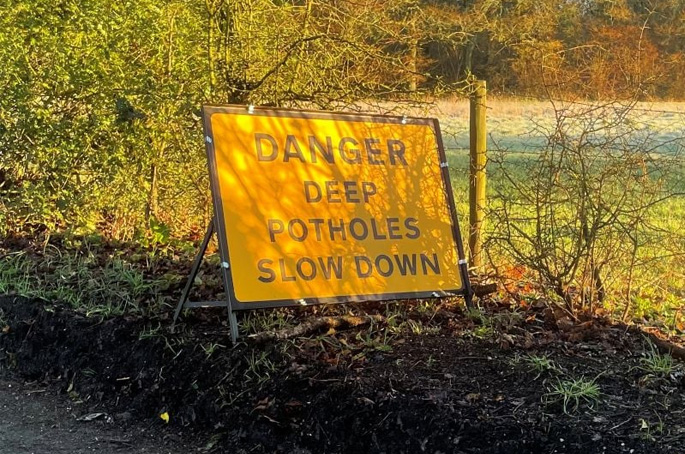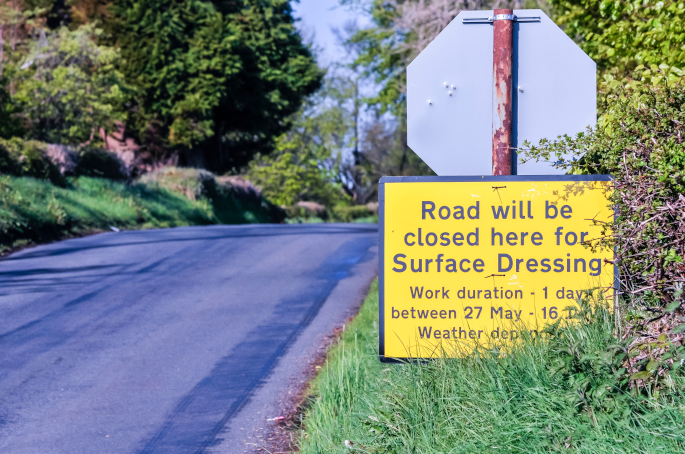Paul Aldridge, WJ Group sustainability director, says WJ is seeking to continue giving young people a sustainable future, despite new challenges.
In my many roles as WJ Group Sustainability Director, Chairman of the Road Safety Markings Association (RSMA), Chairman of NHSS 7 Advisory Committee, and my Group responsibilities to liaise with the Construction Industry Training Board (CITB), it may be understandable if I express some dismay at the present situation regarding apprenticeship and training funding.

The introduction of Apprenticeship Levy and Trailblazer standards has resulted in the loss of the Road Marking Apprenticeship Scheme as it does not meet the IFA criteria for funding. The replacement is a Specialist Applied Skills Programme with some funding through CITB. However, recent CITB skills training reforms, mean funding for this programme has fallen as well, so we have little opportunity to achieve any return on our Apprenticeship Levy contributions.
Nonetheless, our operational pressures increase and WJ as a national contractor delivering major schemes for Highways England, Transport Scotland and local authorities, are expected, quite rightly, to satisfy mandatory training requirements to allow access to sites and complete works safely.
To meet the volume of training expected, we have established our own training academy delivering approved and accredited training courses for LGV Drivers, Fire and Environmental Awareness, Safe Vehicle Operations, Emergency First Aid for Drivers, Safe Urban Driving, Safe and Fuel Efficient Driving, Fork Lift Operational Safety, Traffic Management etc. This extended training supports the core skills learnt under the previous apprenticeship scheme and in place to ensure apprentices are fully competent to carry out tasks safely.
WJ are seeking clarity from the CITB, in respect of many training elements that may still meet funding criteria, but many have not been included, so far.
In the meantime, these issues and uncertainties are having significant impact on the number of apprenticeships that the sector can fund.
Government commendably voice their commitment to create more apprenticeships in a drive to give young people a real opportunity to get on in life but since introducing the new levy only £108m of the £2bn raised has been claimed, as one sector in highway maintenance we feel overlooked.
For many businesses the new levy may be viewed as a tax, especially for those that do not or indeed cannot take on many apprentices, but alternatively it could be a failure of the legislation to understand our industry. Hopefully, with industry collaboration, our concern for this important aspect of our skills recruitment strategy and training needs, will be taken on board as an improvement objective.
Better not complicate the main subject with views on the state of our local road infrastructure, but I will focus on the unprecedented investment in the strategic road network and the desperate need to attract and develop skills within the highways industry.
Over the years, stereotypes surrounding the construction industry have grown with the idea that it is solely a place for men performing hard laborious manual jobs, with little scope for highly skilled specialists. Therefore, the road markings sector may seem an unlikely place for students to look for apprenticeships in their search for new and exciting careers.
However, WJ have been proactively working to change that thinking by providing awareness of varying career development opportunities for young men and women within our sector. We initiated a programme to develop close relationships with schools, sixth form colleges and universities in communities across the UK. The aim has been to foster an awareness and understanding of the different and exciting types of careers and opportunities that WJ, the road marking sector and the highways industry generally can offer young people.
Further to this, with autonomous vehicles becoming an ever-closer reality, the highways and road markings industry can now provide opportunities which are fundamental to the development of ground breaking technology and systems to enable the great leap forward to driverless transport. Achieving this, will require the highways industry to establish close collaboration with vehicle manufacturers, technologists, industry associations and highways authorities as well as many other stakeholders. Coupled with existing ambitions to enhance road safety, improve the environment and increase efficiency, the highways sector now offers many exciting opportunities in the development of unique and innovative solutions.
In fact, in my view, the UK has one of safest road networks in the world, despite being one of the busiest, with an exceptional chance to export new products, services and expertise around the globe, if we seize the initiative. Looking to the future, this gives our industry a unique selling point when trying to attract young people, and here at WJ and the wider industry we have recognised the vital role young talent can play within our organisations; bringing new ideas and skills. This then complements our ability to offer fulfilling and successful careers within a fast paced and changing industry.
Collaboration with the Institute of Highway Engineers (IHE) also creates an additional career development path for all WJ's young talent to gain professional qualifications under a scheme designed to elevate the practical.
The previous two-year formal road marking apprenticeship operated by the RSMA underpinned our own initiatives to ensure we have a skilled and motivated workforce operating in a safe environment, carrying out an important public service. Sadly, this excellent scheme did not fit the requirements of the Trailblazer requirements. Despite having set up a sector ‘Trailblazer Group' producing nationally about 30 apprentices annually it is not enough to sustain the three obligatory training providers.
We were not alone amongst specialist construction sectors to lose what were excellent schemes supporting our industry.
As Chairman of the RSMA, I know how tirelessly the association staff have worked in an endeavour to establish a ‘Trailblazer' scheme and meet the Government's regulatory requirements, but without success. We continue investing in our own recruitment and training initiatives, paying the 0.5% apprenticeship levy as well as our CITB training levy but with little chance of realising the full benefits we should accrue from our total investment.
So, we do feel somewhat disappointed because as well as the issues with the apprenticeship levy for our sector, the vital training courses not yet on the CITB funding register, delivers a double burden on us and our industry, where we truly believe with the right support we could achieve so much more.
































